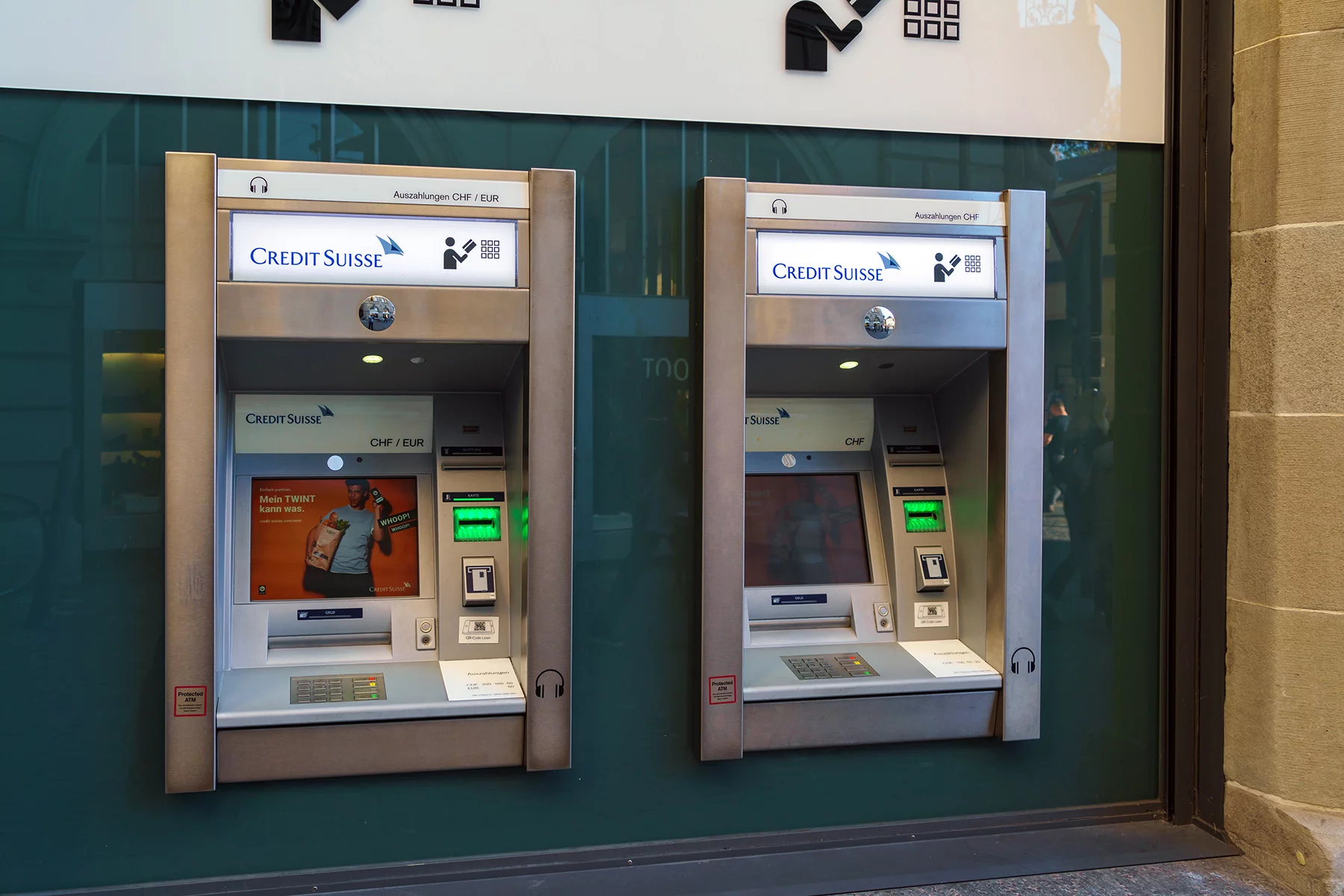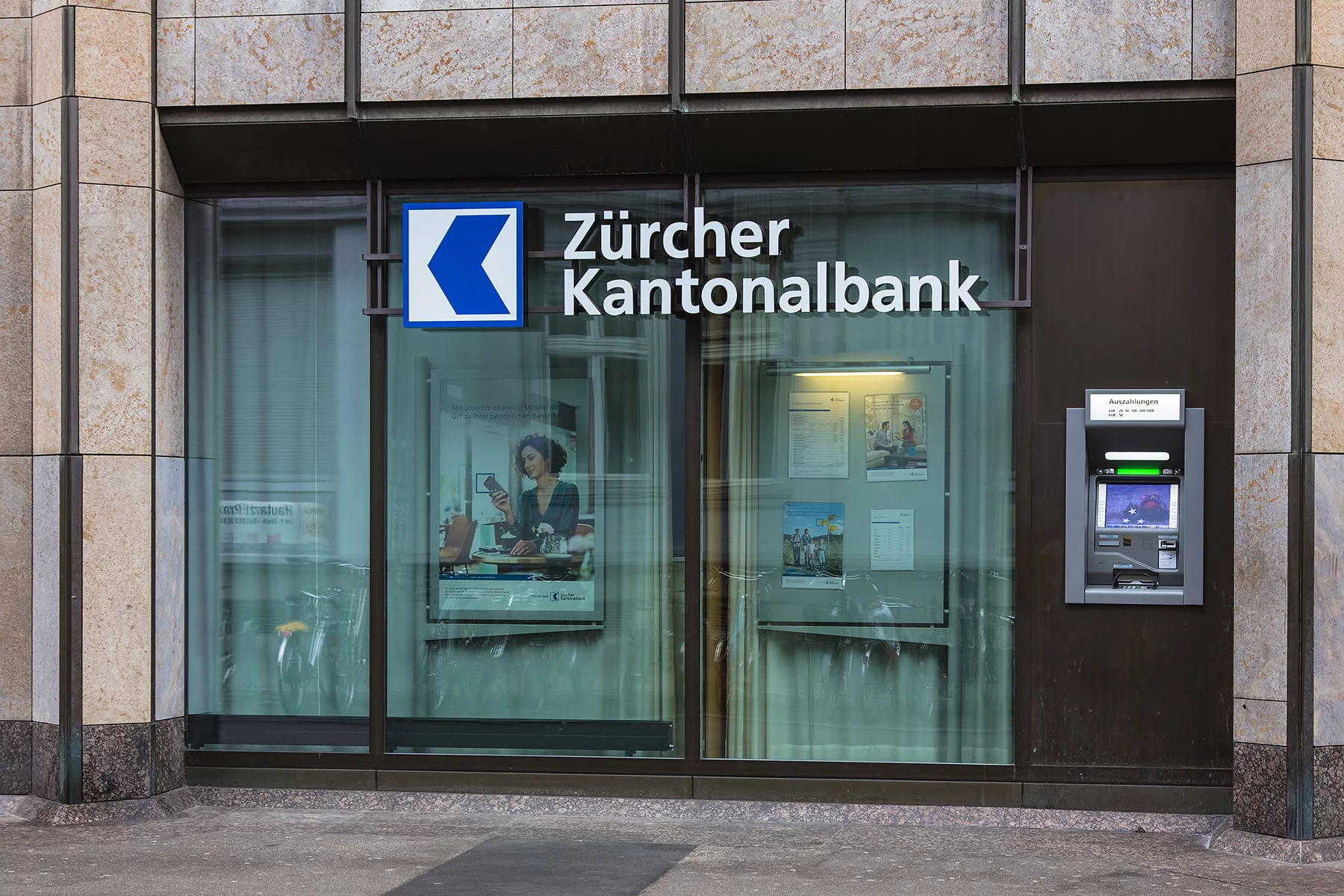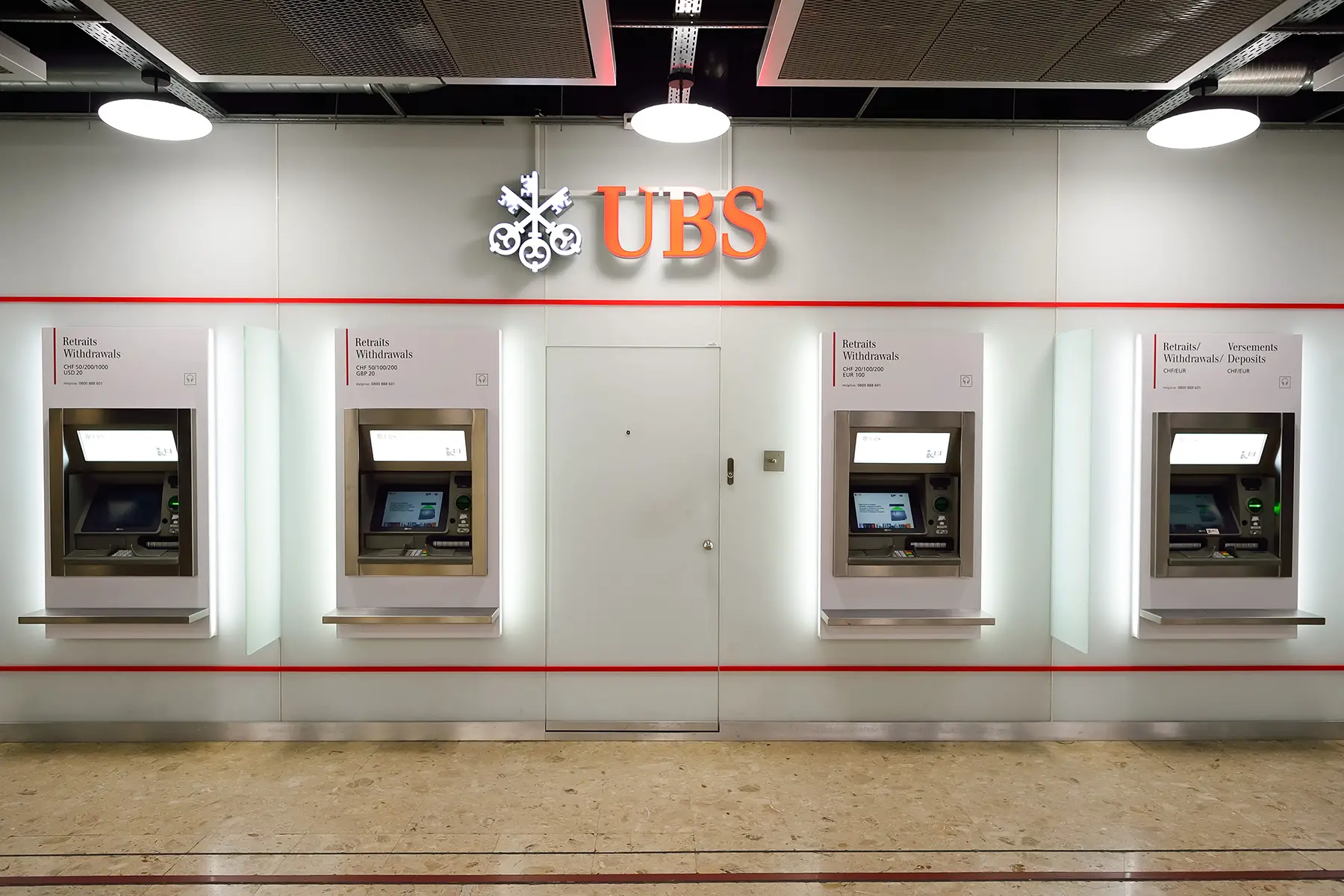This complete guide to opening a bank account in Switzerland includes advice on the following:
- Banking in Switzerland
- Do you need a bank account in Switzerland?
- Types of bank accounts in Switzerland
- How to open a bank account in Switzerland as an expat
- Opening a corporate account in Switzerland
- How to open a bank account in Switzerland for your children
- Choosing a bank account in Switzerland
- Banking services in Switzerland
- Managing your bank account in Switzerland
- Changing banks or closing your bank account in Switzerland
- List of Swiss national and cantonal banks
- Useful resources
N26
N26 is the bank you'll love to use: open your bank account in just eight minutes without paperwork. Take control of your finances with one app where you can manage limits, set PIN, lock/unlock cards, and make no-fee transactions anywhere in the world
Banking in Switzerland
Switzerland is a prosperous and economically advanced country, with one of the highest gross domestic products (GDP) per capita in the world. It is also the world’s largest offshore financial center, with a reputation for privacy, stability, and asset protection.
Everyday banking services in Switzerland are provided by national and cantonal banks. National banks include the likes of UBS, Credit Suisse, Raiffeisen, and Swiss Post.
Cantonal banks are available to residents of the specific canton. The vast majority of cantons have their own banks; however, if you move to a different canton, you’ll usually have to transfer your account. Additional banking services in Switzerland are offered by private banks and investment banks, though these are usually reserved for individuals with significant wealth.
Banks in Switzerland are regulated by the Financial Market Supervisory Authority (FINMA).
Do you need a bank account in Switzerland?
When moving to Switzerland, setting up a Swiss bank account is one of the most pressing tasks you’ll need to undertake. Without a Swiss account, you might find it hard to arrange housing, pay bills, and make purchases.
If you haven’t yet set up a bank account, you’ll find that most stores accept your Visa or Mastercard bank cards as a form of payment, but you may need to pay your bank a foreign currency fee, which can quickly become expensive. This is also the case when withdrawing money at ATMs.
It’s possible to set up a Swiss bank account before you come to the country, but you’re likely to be asked for extensive notarized documentation. It may be easier to start your application online and provide the required documentation to open the account in person once you’re in Switzerland.
Types of bank accounts in Switzerland
Current accounts and joint accounts
Current accounts allow you to receive your salary, pay bills, save money, and invest. Some accounts also give you the option of withdrawing money in either Swiss francs or euros.
You’ll usually need to pay a fee for your current account in Switzerland. National banks usually charge around CHF 5 a month for standard accounts and up to CHF 15 for premium accounts.

If you make cash withdrawals from ATMs managed by other banks, you usually need to pay an additional processing fee. Banks may offer you lower account fees if keep a large amount in a linked saving account or have a mortgage with them.
As well as individual accounts, many banks offer all-inclusive banking services. These packages can include current accounts, savings accounts, and credit cards, all for one monthly fee of around CHF 15.
Most major Swiss banks also offer joint accounts on a one-off or all-inclusive basis. With a joint account, both parties are usually provided with their own bank card and have full access to any funds.
Savings and investment accounts
Savings accounts allow you to put money aside, either on an ad-hoc or regular basis.
It’s usually free to open a savings account, but you may need to pay an administration fee if you wish to withdraw money outside the terms of the agreement (e.g., making extra withdrawals on a limited account, or withdrawing money during a fixed period).
Numbered Swiss bank accounts
Some Swiss banks offered high-security accounts known as numbered accounts, but these aren’t quite as secretive as you might think.
These accounts offer an extra layer of privacy for the account holder, but they come with significant fees of up to CHF 2,000 a year. International payments may be banned and any large payments will be monitored for money laundering purposes.
How to open a bank account in Switzerland as an expat
The simplest way to open a Swiss bank account is by visiting a bank in person. In general, accounts take from one week up to one month to become active.
You won’t usually need to make an appointment to open a bank account. Any requested credit or debit cards can be expected to arrive after a week to 10 days.
Opening a Swiss bank account from abroad
It’s possible to open a bank account before you move to Switzerland, but this can be labor-intensive and time-consuming. Most national banks allow you to view their websites in English, making it easy to research your options as well as ask for an application pack.
If you’re set on opening your account from abroad, you may find it easier to choose a bank that either has a branch in your home country or a relationship with one of your local providers.
Banks will ask for more extensive documentation from overseas applicants. You must prove your identity by providing a passport and residency card (if applicable) and your address. You will also be asked to provide details about your personal and employment history.
Any documents you provide will need to be authenticated, either by providing a notarized copy or Apostille stamp or by visiting a bank branch in person.
Mobile banking in Switzerland
Mobile banking has become a go-to way of managing finances for millions of people around the world, and Swiss banks provide excellent online banking services.
Switzerland’s national and cantonal banks offer app and web-based banking, while a handful of challenger banks have also appeared in recent years to offer accounts managed exclusively through smartphones; plenty of these mobile banks offer services to Swiss customers.
A report by Capco in 2020 showed that Swiss banking apps sometimes provide a less than perfect user experience, but that they outshine other European banks for payment functionality and notifications. Challenger banks came out top in terms of great usability, but traditional banks offered a more comprehensive range of features.
Opening a corporate account in Switzerland
If you’re starting a business in Switzerland, it’s vital to set up a Swiss corporate account.
Setting up a business account is slightly more complicated than a personal account. You may need to attend a meeting at a branch or have a video meeting before your account can be opened.
You’ll also need to provide a range of documentation, including personal identification documents and business registration details. Overall, the whole process can take a number of weeks. Some of the biggest banks also waive business account fees for the first year to entice customers.
It can be possible in some circumstances to open an account while abroad, but the vast majority of banks will require you to have a consultation in Switzerland.
How to open a bank account in Switzerland for your children
Swiss banks offer savings accounts for children, where parents can make and earn interest on deposits for their child’s future.
Youth accounts are in the child’s name but can only be administered by the child’s parents until they reach the legal age. These accounts pay varying amounts of interest, with the best rates only available up to a certain limit (for example, CHF 20,000). Gift savings accounts can be opened by other family members, such as grandparents.
Gift investment accounts are also available from some providers. These involve your savings being invested in a fund. If the fund does well, you could make much higher returns on your cash, but if it performs badly you could end up losing money. You will also need to pay investment fund fees.
Choosing a bank account in Switzerland
The right bank account for you depends on your own circumstances, so take some time to compare your options before choosing a provider. One option is by using an online comparison tool such as moneyland.ch to assess financial products from different banks.

Consider which bank offers the best blend of services; for example, will you need to make regular cross-border payments, take cash advances or apply for a loan anytime soon, and do all-inclusive accounts justify their costs?
Many Swiss banks offer relatively low-cost, expat-friendly services, so weigh up their costs and benefits to find the right fit for you.
International money transfers in Switzerland
International bank transfers from Switzerland may carry a fee from both the issuing and receiving bank.
Swiss banks typically charge around CHF 5–20 for sending payments (which doesn’t always include the receiving bank’s charges), but generally do not charge for receiving funds.
As banks charge a fixed rate, they’re typically cheaper than a money union for large sums and more expensive than online payment systems for small amounts. Some banks may not send funds to certain countries, such as Somalia.
For international money transfers, there are alternative solutions to banks which could prove cheaper and more convenient, such as:
You can use an online comparison tool to save on fees, obtain the best exchange rates, and find the cheapest option for your international money transfers.
Banking services in Switzerland
Many Swiss banks offer borrowing options such as mortgages, loans, and credit cards. Mortgages and loans may come with preferential rates if you do your everyday banking with the provider in question.
Credit cards come with annual fees of up to CHF 30 per year. As a new customer, you may have to make a deposit of one or two times your monthly credit limit into your current account in order to get a credit card. This money is invested, and you earn interest.
Offshore accounts
Expats living in Switzerland may find that opening an international offshore account is a good way to manage their finances.
Offshore accounts are located outside the holder’s country of residence and usually offer distinct advantages such as a wider range of cross-border services and lower taxation on funds.
Having an offshore account is particularly helpful for anyone who works abroad, spends a lot of time in more than one country, or frequently transfers money between countries.
Managing your bank account in Switzerland
You can usually manage your Swiss bank account in person, online, as well as on the phone.
In major cities, most banks will have a staff member available who speaks English. Banks are typically open from 9:00 to 17:00 from Monday to Friday, although some branches close during lunch.
You can manage your bank account at any time through your provider’s online banking service or app. In unforeseen situations such as losing your bank card or suspecting fraudulent transactions, you should be able to contact your bank on its 24-hour emergency phone number.
Changing banks or closing your bank account in Switzerland
The biggest banks in Switzerland offer switching services, where you can provide details to your new bank and it will deal with corresponding with your current provider. Banks usually require you to fill out a form containing your previous account details, any additional cards, as well as regular incoming and outgoing payments.
Closing a bank account in Switzerland is usually a relatively easy process. You’ll usually just need to contact your bank and ensure you’ve paid any outstanding fees. If you’ve already opened your new account, you can transfer your assets across directly, Your bank may not fully close your account until all direct debits and standing orders have been canceled.
List of Swiss national and cantonal banks
National banks in Switzerland
- Credit Suisse
- Raiffeisen (German/French/Italian only)
- Swiss Post/Post Finance
- UBS
Cantonal banks in Switzerland
All cantons have banks apart from Solothurn and Appenzell Ausserrhoden. You can find the websites of each main cantonal bank below (some websites are only available in French and German).
- Aargau: Aargauische Kantonalbank (AKB)
- Appenzell Innerrhoden: Appenzeller Kantonalbank (APPKB)
- Basel-Landschaft: Basellandschaftliche Kantonalbank (BLKB)
- Basel-Stadt: Basler Kantonalbank (BKB)
- Bern: Berner Kantonalbank (BEKB/BCBE)
- Fribourg: Banque Cantonale de Fribourg/Freiburger Kantonalbank (BCF/FKB)
- Geneva: Banque Cantonale de Genève (BCGE)
- Glarus: Glarner Kantonalbank (GLKB)
- Graubünden: Graubündner Kantonalbank (GKB)
- Jura: Banque Cantonale du Jura (BCJ)
- Luzern: Luzerner Kantonalbank (LUKB)
- Neuchâtel: Banque Cantonale Neuchâteloise (BCN)
- Nidwalden: Nidwaldner Kantonalbank (NKB)
- Obwalden: Obwaldner Kantonalbank (OWKB)
- St. Gallen: St Galler Kantonalbank (SGKB)
- Schaffhausen: Schaffhauser Kantonalbank (SHKB)
- Schwyz: Schwyzer Kantonalbank (SZKB)
- Thurgau: Thurgauer Kantonalbank (TKB)
- Ticino: Banca dello Stato del Cantone Ticino (BancaStato)
- Uri: Urner Kantonalbank (URKB)
- Valais: Banque Cantonale du Valais/Walliser Kantonalbank (BCVs/WKB)
- Vaud: Banque Cantonale Vaudoise (BCV)
- Zug: Zuger Kantonalbank (Zugerkb)
- Zurich: Zürcher Kantonalbank (ZKB)
Regional and savings banks are also available in Switzerland, which tend to deal with business and retail banking.
Useful resources
- Financial Market Supervisory (FINMA)
- Association of Foreign Banks in Switzerland (AFBS)
- Association of Swiss Cantonal Banks (German/French/Italian only)







